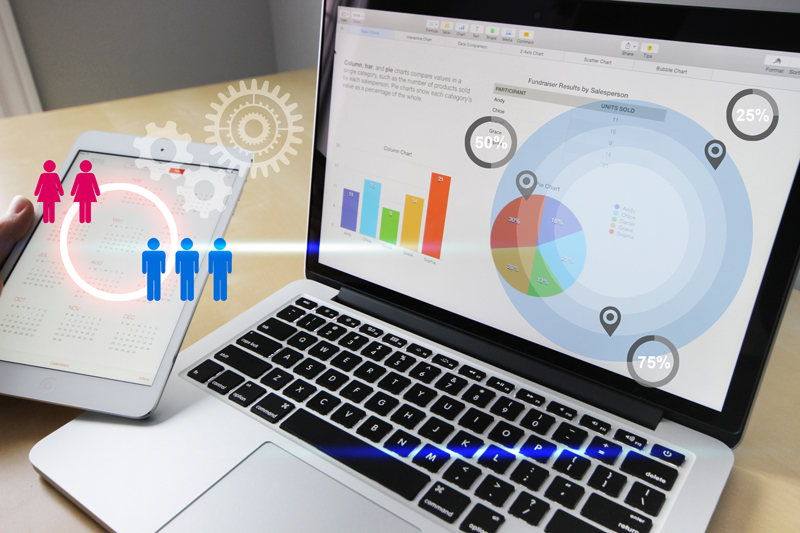Home >Technology peripherals >AI >Situational Intelligence: The Next Frontier of Data Analytics
Situational Intelligence: The Next Frontier of Data Analytics
- WBOYWBOYWBOYWBOYWBOYWBOYWBOYWBOYWBOYWBOYWBOYWBOYWBforward
- 2024-03-30 09:16:171161browse

Overview of situational intelligence
Situational intelligence is an artificial intelligence technology that aims to enable computer systems to understand and adapt to the environment in different situations, users Needs and goals. It involves understanding context, background knowledge and user intentions, and making intelligent decisions or providing personalized services based on these understandings.
Situational intelligence usually involves the following aspects:
Natural language processing (NLP): Emotional intelligence systems need to be able to understand the semantics, context, and context in natural language. This includes identifying entities, relationships, emotions, and user intent and purpose in language.
Situational intelligence systems usually build knowledge graphs or semantic networks to integrate and display rich knowledge and relationships. Such a knowledge structure can help the system better understand context and related information.
Machine learning and data mining: Situational intelligence systems can use machine learning and data mining technologies to learn patterns, regularities, and trends from large-scale data, thereby improving the ability to understand and respond to different situations.
Sensor technology in intelligent systems can be used to sense physical parameters and user behaviors in the environment, thereby further enriching the understanding of the situation.
Reasoning and decision-making: Situational intelligence systems need to be able to reason and make decisions based on an understanding of the situation. This may involve inferring user intent, predicting future situations, or making intelligent behavioral choices.
Situational intelligence has applications in various fields, including smart assistants, smart homes, smart transportation, smart healthcare, etc. By combining technology with the environment and user needs, contextual intelligence can provide more personalized, intelligent and human services and experiences.
The core meaning of situational intelligence is by analyzing data in the context of its environment, relationships and interactions. Rather than looking at data in isolation, contextual intelligence seeks to understand the dynamics and nuances that shape the meaning and significance of data. This holistic view enables organizations to gain deeper insights, make smarter decisions, and derive greater value from their data assets.
One of the key drivers of the rise of contextual intelligence is the increasing complexity of data ecosystems. Data sources range from structured databases to unstructured text, images, and sensor data, and organizations face daunting challenges integrating and interpreting disparate data sets. Situational intelligence provides a solution by providing a framework for understanding how different data sources relate to each other and how they collectively contribute to organizational goals.
Another factor driving the adoption of contextual intelligence is the growing need for real-time insights. In today's hyperconnected world, organizations need to make decisions quickly and adapt to rapidly changing environments. Situational intelligence enables organizations to analyze data in real-time, allowing them to quickly respond to emerging trends, identify opportunities, and mitigate risks before they escalate.
Additionally, contextual intelligence is critical to address the limitations of traditional data analysis methods. While traditional analytics tools are good at processing structured data and executing predefined queries, they often struggle with unstructured data and complex relationships. Situational intelligence bridges this gap by combining advanced technologies such as natural language processing, machine learning, and semantic analysis to extract meaning from unstructured data and reveal hidden patterns and insights.
The applications of situational intelligence are widespread and far-reaching, spanning industries and fields. In healthcare, contextual intelligence can help providers deliver personalized care by analyzing data on a patient’s medical history, lifestyle and genetic makeup. In finance, contextual intelligence can identify fraudulent activity by analyzing transaction data in the context of historical patterns and behavioral indicators. In retail, contextual intelligence can optimize marketing campaigns by analyzing data on customer preferences, browsing history and purchasing behavior.
However, realizing the full potential of situational intelligence requires overcoming some challenges. Chief among these is the need for a strong data governance framework to ensure data quality, integrity and privacy. Organizations must also invest in technology infrastructure capable of processing and analyzing large amounts of data in real time, while adhering to regulatory requirements and industry standards.
Additionally, organizations must cultivate a culture of data literacy and analytical thinking that enables employees at all levels to effectively leverage situational intelligence. This requires providing training and education programs to equip employees with the skills and knowledge needed to extract insights from data and apply them to decision-making processes.
Summary
Contextual intelligence represents the next frontier in data analytics, providing organizations with a powerful tool to extract actionable insights from complex and disparate data sets. By adopting contextual intelligence, organizations can gain deeper insights into their data, unlock new innovation opportunities, and derive greater value from their data assets. As we continue to navigate the evolving digital landscape, contextual intelligence will play an increasingly important role in shaping the future of data analytics and driving business success.
The above is the detailed content of Situational Intelligence: The Next Frontier of Data Analytics. For more information, please follow other related articles on the PHP Chinese website!

